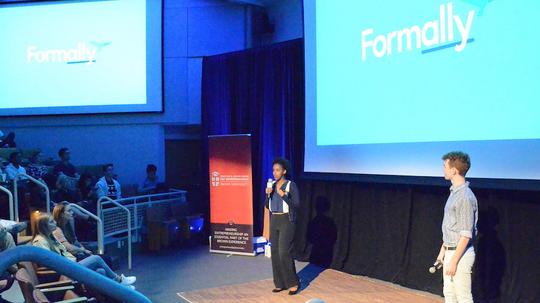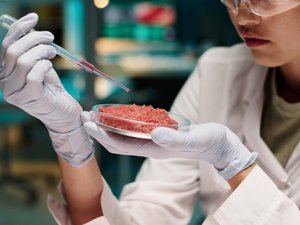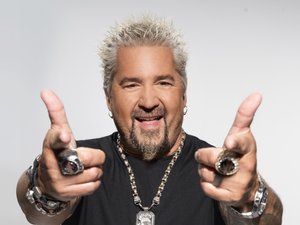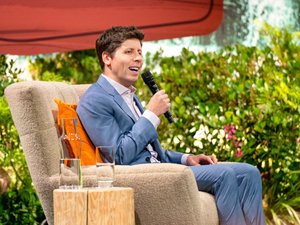
In part one of our coverage of the Breakthrough Lab Venture Showcase hosted by Brown University’s Jonathan M. Nelson Center for Entrepreneurship, we introduced the first six startups in this year’s cohort. They included language tech startups, different software platforms and an exchange for shares at private companies, among others.
As a reminder, B-Lab is a unique, intensive eight week accelerator program that supports student entrepreneurs developing high-impact ventures by providing students access to high-level sector specific mentoring, business and technical support, focused programming and dedicated space. Here are the remaining startups in this year’s cohort. They include ideas to make the immigration process easier, probiotic popsicles and a new and improved sticky bra.
Formally
Every year, six million Africans apply for immigration status in the U.S. But in 2017, only 65,000 were actually admitted. The application form for this process, the I-589, is complex, consisting of 14 pages and while there are lawyers and organizations to assist immigrants, the process ends up being timely and expensive. In fact, 86 percent of applicants go through the process without representation.
It is for these reasons that Co-Founders Matthew Warren and Diane Mutako came up with the idea for Formally, an online platform that takes I-589 questions and adds context so applicants can better understand what they are being asked and how best to fill out the form. The platform also translates questions and context into other languages.
Mutako and Warren say Formally can boil four costly hours of lawyer timel into one. The company plans to provide the service to immigrants for free, but charge lawyers and organizations a monthly fee. The company also plans to apply the platform to other applications for immigrants such for the employee authorization card.
The Better Pop
Ruby’s Schecter’s mother has a lot of digestive problems, which is why she takes probiotics. However, Schecter’s mother can’t eat a lot of foods and doesn’t like fermented tea, so in order to make the process easier, Schecter baked the probiotics into a popsicle.
This solution is now the main product in Schecter’s company, The Better Pop. The probiotics market is already worth $62 billion and will grow to over $136 billion by 2024. Schecter is looking to raise $50,000 in order to get her recipe patented and rent kitchen space to launch out of in New York City.
Persona
In the age of the internet, users are forced to create countless accounts for different websites, remember loads of passwords and constantly verify that they are not robots and in fact a human being. Persona is hoping to get rid of this newfound misery by reducing account creation and human verification down to a single click.
According to Persona Co-Founders Jacob Begemann, Eric Dellavalle and William Schor, 75 percent of online shopping carts are abandoned largely as a result of websites asking a user to create an account. With Persona, users would create a password, enter their personal information and verify they are real one time and then this would apply to every website going forward. The password-manager market is growing by 20 percent every year.
Impact Labs
There is a lot of tech talent in colleges today, but for some reason, all coders and computer science majors tend to end up at the same three companies: Amazon, Facebook and Google. Impact Labs’ goal is to empower computer science students to use their skills for social good.
“We really truly believe the best and brightest should be working on problems that have the biggest chance to make a positive impact on this world,” said Founder Adi Melamed.
The revenue-positive organization has built a national community of computer science students and is connecting them with companies that tackle socially impactful problems, many of which can also offer competitive compensation. At the Impact Summit, the organization brought together 250 computer science students, 20 universities, 11 companies and 15 partners and sponsors, raising $84,000 and giving out $40,000 in prize money.
In the future, Impact Labs plans to hold career fairs and do resume books, hiring placements and fellowships in major cities and at universities.
Eve & Mathieu
Milk made with non-dairy supplements such as soy, almond and coconut is a growing market, primarily because many people cannot digest lactose. Eve & Mathieu seeks to capitalize on this trend with its new non-dairy milk dispensary machine built specifically for cafeterias or food service areas. The milk is made from concentrate and the dispensary machine will offer four different varieties of non-dairy milk.
The company is planning to launch in college cafeterias — a $27 million market — where it is already seeing significant demand. Fifteen college food service directors have already showed interest. The company then plans to move into restaurants, coffee shops and hotels.
Editor’s Note: Eve & Mathieu founders Philip Mathieu and Kevin Eve were named to Rhody Inno’s 25 Under 25. Read more here.
Reliabra
While a key part of women’s fashion, sticky bras are less than ideal. They each cost around $40 but don’t last long; they are difficult to clean and they don’t always stay on.
Relibara, which was founded by Rose Mangiarotti, is aiming to develop a superior sticky bra, one with removable adhesives that can also go in the washer. Mangiarotti came up with the idea after her sticky bra fell off one night while she was out dancing on a date.
Although still in the product development phase, Mangiarotti said Reliabra’s will be able to last up to eight years and will be made cheaper than today’s standard sticky bras. She is currently in the process of working with manufacturers.
Editor’s Note: ReliaBra founder Rose Mangiarotti was named to Rhody Inno’s 25 Under 25 (read more here) and is a finalists for Cox Business' #GetStartedRI pitch event.
Goteff
Goteff rounds out the B-Lab cohort, but the team was unable to present due to other obligations overseas related to development of the company. Goteff is a nutrition brand based on the super-grain teff, a high-fiber food and a strong source of protein, manganese, iron and calcium.
Disclosure: Cox Business RI is a founding partner of Rhode Island Inno.








